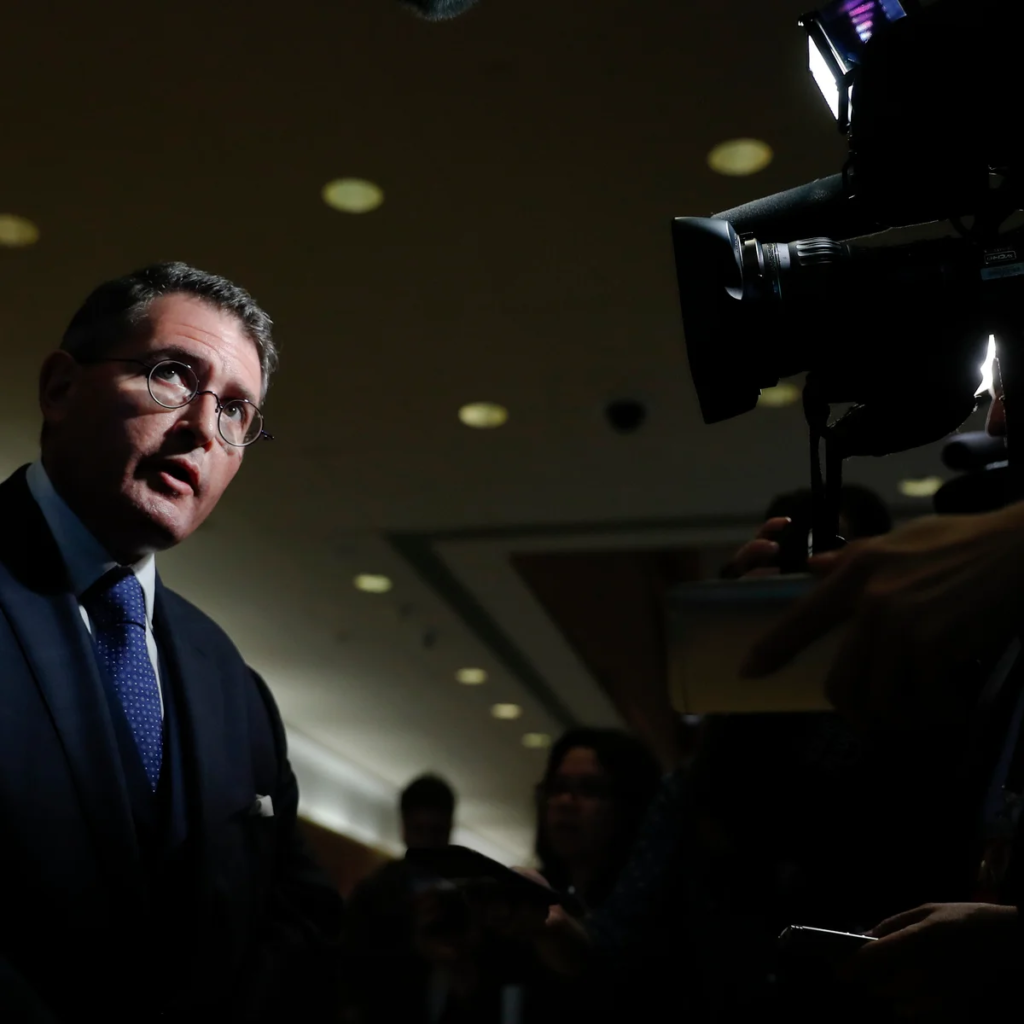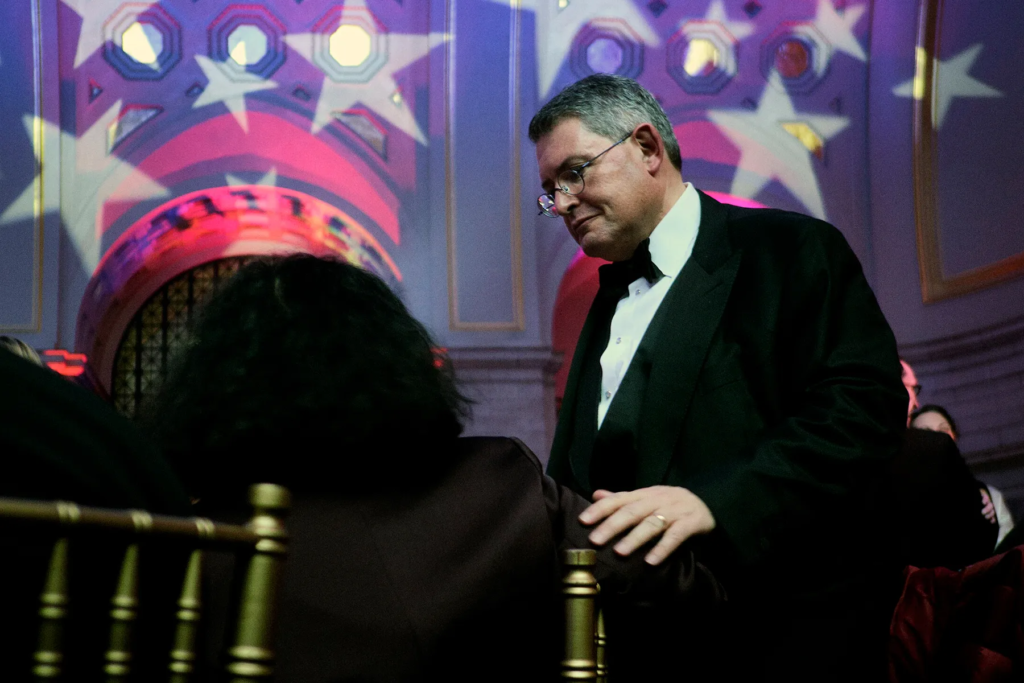Leonard Leo, a prominent figure in American conservative legal circles, has long been a powerhouse in shaping the U.S. judiciary. As a key leader of the Federalist Society, Leo has played a pivotal role in advising Republican presidents on judicial nominations, most notably during Donald Trump’s first term. His influence helped secure a conservative supermajority on the Supreme Court, fundamentally altering the nation’s legal landscape. However, recent developments, including a public feud with Trump and legal challenges tied to his network, have thrust Leo back into the spotlight, raising questions about his ongoing role in American politics and the judiciary. This article explores Leo’s career, his recent controversies, and what they mean for the future of conservative legal activism.

Who Is Leonard Leo?
Leonard Leo is a lawyer and conservative activist best known for his work as the co-chairman of the Federalist Society, a nonprofit organization that promotes originalist and textualist interpretations of the U.S. Constitution. Born in 1965, Leo has spent decades building a network of conservative legal minds, fostering relationships with lawmakers, judges, and donors to advance a vision of limited government and strict constitutional interpretation. His influence began to take shape under President George W. Bush, when he advised on the appointments of Justices John Roberts and Samuel Alito to the Supreme Court.
Leo’s impact peaked during Trump’s first presidency (2017–2021), when he played a central role in selecting three Supreme Court justices: Neil Gorsuch, Brett Kavanaugh, and Amy Coney Barrett. These appointments cemented a 6-3 conservative majority on the court, leading to landmark decisions like the overturning of Roe v. Wade in 2022. According to a 2023 post on X, Leo’s efforts have been credited with ensuring that “70% of amicus briefs guiding conservative bloc’s key decisions” in recent years were linked to his network. His strategic approach—combining legal expertise, political connections, and fundraising—has made him a linchpin in the conservative movement.
The Federalist Society and Leo’s Network
The Federalist Society, founded in 1982, has been Leo’s primary platform for influence. The organization serves as a hub for conservative and libertarian lawyers, judges, and scholars who advocate for judicial restraint and originalism. Under Leo’s leadership, it has grown into a powerful force, vetting judicial candidates and shaping Republican judicial policy. Leo’s ability to connect wealthy donors with conservative causes has also fueled his influence. Groups like Donors Trust, tied to Leo, have funneled millions into legal advocacy, including efforts to challenge federal regulations and expand conservative judicial power.
Beyond the courts, Leo’s ambitions extend to broader cultural and political spheres. A 2024 post on X noted that his “dark money network” is pushing to influence corporations, media, entertainment, school boards, and religious institutions. This expansive vision has drawn both praise and criticism, with supporters viewing him as a defender of constitutional principles and detractors accusing him of wielding unchecked influence through opaque funding networks.
Trump’s Falling-Out with Leo
In a surprising turn, Leo’s relationship with Trump has soured. On May 29, 2025, Trump publicly attacked Leo on Truth Social, calling him a “sleazebag” who “probably hates America” after a U.S. Court of International Trade ruling struck down Trump’s tariff policies. Trump’s frustration stems from his belief that the conservative justices Leo helped appoint failed to deliver favorable rulings, particularly after the 2020 election when they declined to intervene in his efforts to challenge the results. The former president’s outburst, reported by outlets like CBS News and Politico, highlights a growing rift between Trump and parts of the conservative legal establishment.

Despite the criticism, Leo responded diplomatically, telling Politico, “I’m very grateful for President Trump transforming the Federal Courts, and it was a privilege being involved.” He emphasized that the judiciary is stronger than ever, suggesting that Trump’s judicial legacy remains a point of pride. However, Trump’s attack could signal trouble for Leo’s influence in a second Trump administration. Some conservatives, as noted in a May 2025 Fox News report, still expect Leo to play a role in future judicial nominations, but the public spat has raised doubts about his standing with Trump’s inner circle.
Legal Challenges and Tariff Controversies
Leo’s influence is also under scrutiny due to a lawsuit challenging Trump’s tariffs, filed by the New Civil Liberties Alliance (NCLA), a libertarian-leaning nonprofit backed by Leo and billionaire Charles Koch. The lawsuit, reported by The New York Times and The Guardian in April 2025, argues that Trump’s use of emergency powers to impose tariffs is unlawful. The case, brought on behalf of a Florida stationery company, reflects growing conservative opposition to Trump’s economic policies, which some see as overreaching. This legal challenge has sparked debate about whether Leo’s network is shifting away from unconditional support for Trump’s agenda.
The tariff lawsuit is part of a broader pattern of Leo’s groups pushing back against federal overreach. The NCLA, for instance, was instrumental in overturning Chevron deference in 2024, a Supreme Court decision that limited federal agencies’ regulatory power. This victory, celebrated by conservatives, underscores Leo’s ability to shape legal outcomes through strategic litigation. However, his involvement in anti-tariff efforts has drawn ire from Trump loyalists, with one X post in April 2025 questioning why Republicans view Leo as a Trump ally given his ties to the lawsuit.
Criticism and Ethical Concerns
Leo’s influence has not come without controversy. Critics, including progressive watchdog groups like Citizens for Responsibility and Ethics in Washington (CREW), have raised concerns about his use of dark money to sway judicial outcomes. A 2023 X post by CREW highlighted Leo’s alleged secret payments to Ginni Thomas, wife of Supreme Court Justice Clarence Thomas, raising questions about conflicts of interest. These payments, reportedly tied to Leo’s nonprofit ventures, have fueled calls for greater transparency in judicial advocacy.
Additionally, Leo’s cultural ambitions have drawn scrutiny. A former media relations director for Leo reportedly said he recognized two decades ago that conservatives were losing the culture war on issues like abortion and gay rights, prompting him to focus on stacking the courts to counter public opinion. This strategy, outlined in a 2024 X post, has been criticized as undemocratic by some, who argue that Leo’s influence bypasses the will of the majority.
What’s Next for Leonard Leo?
As Trump’s second term unfolds, Leo’s role in conservative legal circles remains uncertain. His falling-out with Trump could limit his influence on future judicial nominations, especially if Trump leans on other advisors. However, Leo’s deep ties to the Federalist Society and his fundraising prowess make him a formidable figure. A March 2025 article by The Free Press noted that Leo continues to advocate for conservative causes, including addressing threats against judges and critiquing the pro-life movement’s challenges post-Roe.
The tariff lawsuit and Trump’s public criticism may also signal a broader shift in the conservative movement. Some, like X user @ATabarrok, argue that Trump’s attacks on Leo reflect a deeper fracture, with the former president “tearing down” the conservative legal framework he once relied on. Whether Leo can navigate this tension while maintaining his influence will depend on his ability to adapt to a changing political landscape.

Conclusion
Leonard Leo’s legacy as a conservative kingmaker is undeniable, but his current challenges highlight the complexities of wielding influence in a polarized political environment. From reshaping the Supreme Court to facing Trump’s wrath, Leo remains a polarizing figure whose actions continue to spark debate. As the conservative movement grapples with its priorities, Leo’s next moves will likely shape not only the judiciary but also the broader direction of American conservatism. For now, his story serves as a reminder of the power—and peril—of behind-the-scenes influence in U.S. politics.
Sources:
Read More :- Gen Z’s Tanning Trend Sparks Public Health Concerns in the USA





